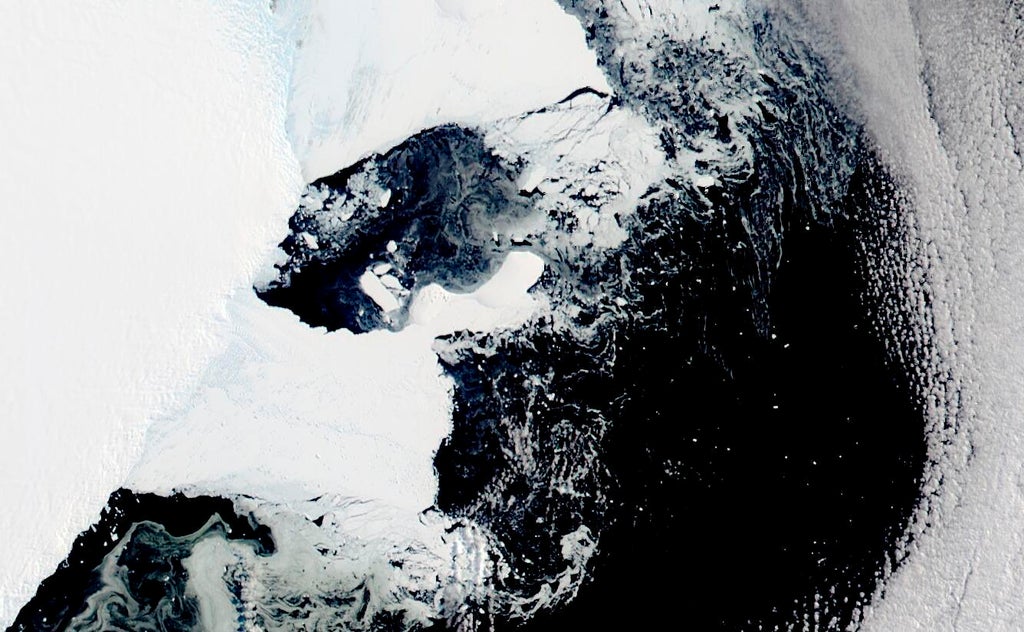
An ice shelf the size of New York City has collapsed in East Antarctica, an area long thought to be stable and not hit much by climate change, concerned scientists said Friday.
The collapse, captured by satellite images, marked the first time in human history that the frigid region had an ice shelf collapse. It happened at the beginning of a freakish warm spell last week when temperatures soared more than 70 degrees (40 Celsius) warmer than normal in some spots of East Antarctica. Satellite photos show the area had been shrinking rapidly the last couple of years, and now scientists say they wonder if they have been overestimating East Antarctica’s stability and resistance to global warming that has been melting ice rapidly on the smaller western side and the vulnerable peninsula.
The ice shelf, about 460 square miles wide (1200 square kilometers) holding in the Conger and Glenzer glaciers from the warmer water, collapsed between March 14 and 16, said ice scientist Catherine Walker of the Woods Hole Oceanographic Institute. She said scientists have never seen this happen in this part of the continent and that makes it worrisome.
“The Glenzer Conger ice shelf presumably had been there for thousands of years and it’s not ever going to be there again,” said University of Minnesota ice scientist Peter Neff.
The issue isn’t the amount of ice lost in this collapse, Neff and Walker said. It’s negligible. But it’s more about the where it happened.
Neff said he worries that previous assumptions about East Antarctica’s stability may not be so right. And that’s important because the water frozen in East Antarctica if it melted — and that’s a millennia-long process if not longer — would raise seas across the globe more than 160 feet (50 meters). It’s more than five times the ice in the more vulnerable West Antarctic Ice Sheet, where scientists have concentrated much of their research.
Scientists had been seeing the ice shelf shrink a bit since the 1970s, Neff said. Then in 2020, the shelf’s ice loss sped up to losing about half of itself every month or so, Walker said.
“We probably are seeing the result of a lot of long time increased ocean warming there,” Walker said. “it’s just been melting and melting.”
And then last week’s warming “probably is something like, you know, the last straw on the camel’s back.”
___
Read stories on climate issues by The Associated Press at https://apnews.com/hub/climate
___
Follow Seth Borenstein on Twitter at @borenbears.
____
Associated Press climate and environmental coverage receives support from several private foundations. See more about AP’s climate initiative here. The AP is solely responsible for all content.







